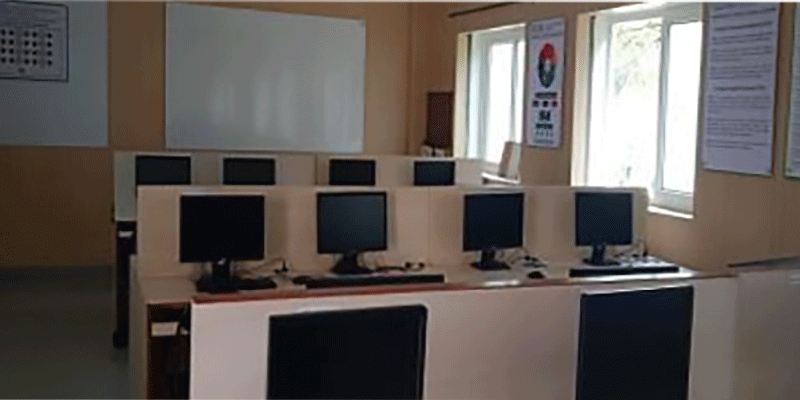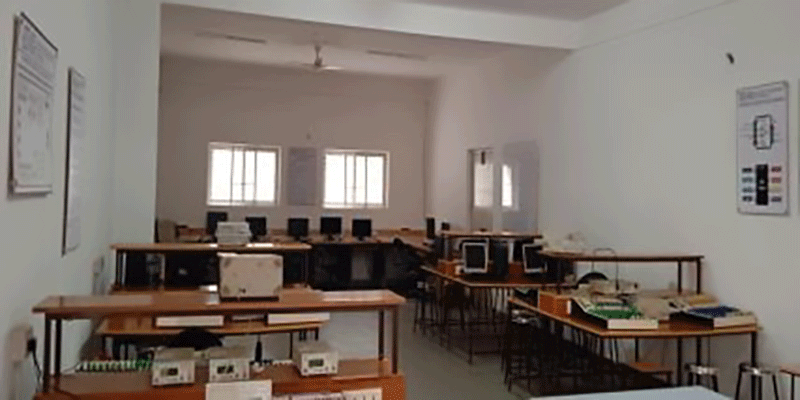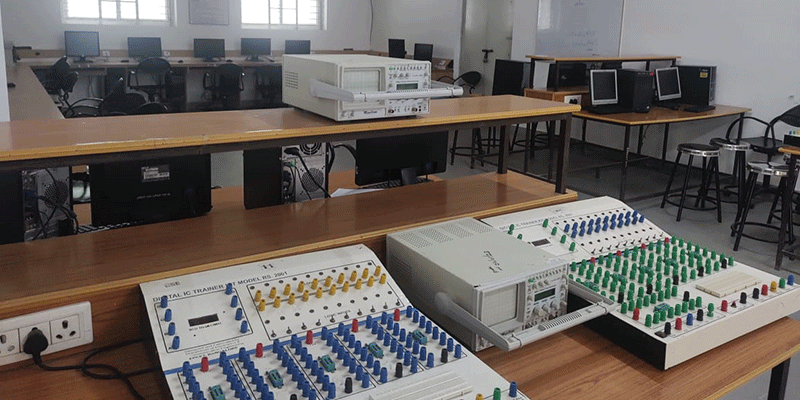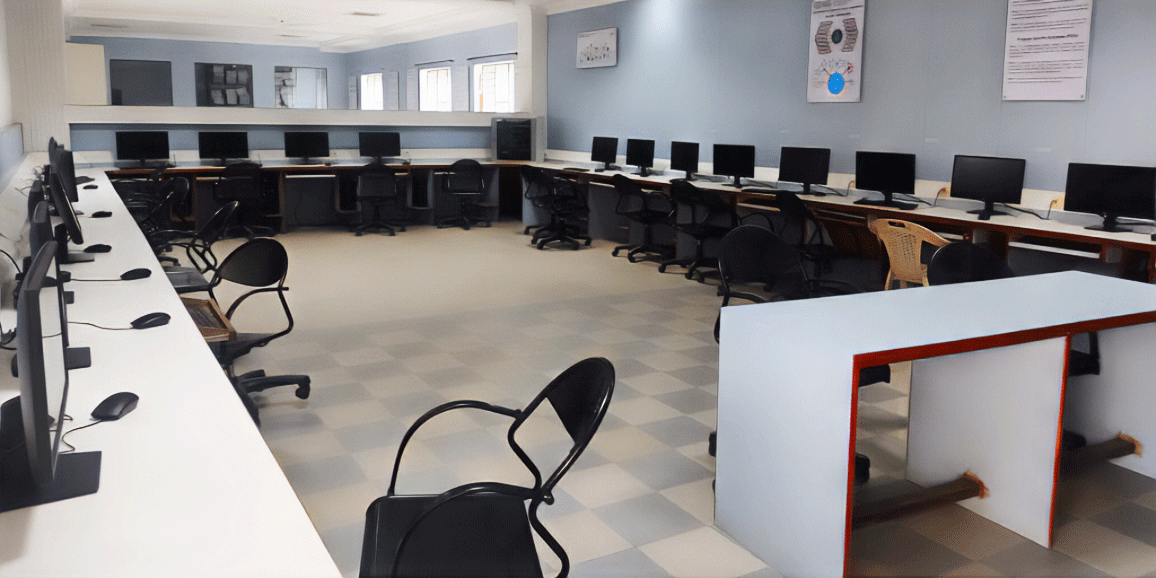Department Profile

The Department of Artificial Intelligence and Data Science was established in the year 2021 to meet the growing demand for skilled professionals in the rapidly evolving fields of artificial intelligence and data sciences, aiming to empower individuals with the knowledge and expertise required to navigate and contribute to this technology-driven landscape.
The Department has well qualified and experienced faculty. It ensures a comprehensive 360-degree teaching-learning environment, focusing not only on curriculum-based education but also on preparing students for future market challenges. Faculty members, enthusiastic about research, contribute to esteemed journals, conferences, and hold multiple patents.
The department provides comprehensive training in cutting-edge technologies and methodologies, with a strong emphasis on machine learning, data analysis, and deep learning. Focused on hands-on experience and real-world applications, students are well-prepared to excel in roles related to artificial intelligence (AI). The department boasts state-of-the-art lab facilities, encompassing the Database Management Systems Lab, Design Analysis and Algorithms Lab, Analog and Digital Electronics Lab, Microcontroller and Embedded Systems Lab, and Full Stack Development Lab. Additionally, students can enhance their skills through value-added courses such as Basics of Data Science and Full Stack Web Development, ensuring they are thoroughly equipped for successful careers in AI and data sciences.
HoD Message
Dear Students,
Welcome and greetings to the Department of Artificial Intelligence and Data Science at EPCET!
I am delighted to extend a warm welcome you to the Department of Artificial Intelligence and Data Science. Leading this department fills me with great excitement, and I am dedicated to steering our academic community towards excellence in these dynamic and transformative fields.
Artificial Intelligence and Data Science are at the forefront of rapid advancements, offering profound opportunities across various industries and domains. As these technologies progress, their seamless integration into our daily lives will bring about significant impact. However, it's paramount to address ethical and regulatory considerations to ensure their responsible and beneficial application.
Our department stands committed to providing you with a top-tier education, arming you with the necessary skills and knowledge to thrive in this swiftly evolving technological landscape. Through our exploration of artificial intelligence, machine learning, data analysis, and more, you'll delve into cutting-edge technologies reshaping industries globally.

Dr. Anand R
East Point College of Engineering and Technology
Our esteemed faculty members are industry experts eager to share their knowledge with you. With their guidance, you'll not only grasp theoretical concepts but also engage in practical, hands-on experiences preparing you for real-world challenges.
Moreover, our dedication extends beyond the classroom, fostering collaboration, innovation, and ethical considerations in all your pursuits. The skills you acquire here will not only propel your future careers but also empower you to make a positive societal impact.
Join us in our journey to explore the frontiers of AI and Data Science, shaping a brighter future for all. I wish you abundant growth and success during your tenure in our department.
Laboratories

Database Management System Lab
Database Management System Lab :- This laboratory course enables students to get practical experience in design, develop, implement, analyze and evaluation/testing of Asymptotic performance of algorithms , Linear data structures and their applications such as stacks, queues and lists, Non-Linear data structures and their applications such as trees and graphs, Sorting and searching algorithms.
Data Structures and Algorithms Lab :- This Lab will enable students to Foundation knowledge in database concepts, technology and practice to groom students into well-informed database application developers. Strong practice in SQL programming through a variety of database problems. Develop database applications using front-end tools and back-end DBMS.

Data Structures and Algorithms Lab

Analog and Digital Electronics Lab
Analog and Digital Electronics Lab :- In Analog and Digital Electronics lab, students can gain the knowledge of designing analog and digital electronic circuits, which they can understanding the hardware and simulation. The students can understand the photo electronics devices, 555 timer IC, Regulator ICs and uA741. The students can make use of simplifying techniques in the design of combinational circuits. The students can illustrate combinational and sequential digital circuits and demonstrate the use of flipflops and apply for registers. They can design and test counters, Analog-to-Digital and Digital-to-Analog conversion techniques. They can gain knowledge of simulation tools such as PSPICE, Xilinx and Modelsim.
Microcontroller and Embedded Systems Lab :- In MCES lab, the students can understand the fundamentals of ARM-based systems, including programming modules with registers and the CPSR. They can use the various instructions to program the ARM controller. They can do program various embedded components using the embedded C program. They can Identify various components, their purpose, and their application to the embedded system's applicability. They can understand the embedded system's real-time operating system and its application in IoT. Students can understand the hardware architecture of ARMLPC2148 and they can gain the knowledge the how input and output devices will be interfaced in to microcontroller. They can demonstrate the real time embedded IOT projects and they can exhibit their innovative ideas.

Microcontroller and Embedded Systems Lab

Full Stack Development Lab
Full Stack Development Lab :- The Full Stack Development Lab Development Lab aims to equip students with a comprehensive skill set in web development. Students will learn the intricacies of web development, including configuring web services. They will gain a deep understanding of user interface functionalities, enabling them to design user-friendly and visually appealing applications. Additionally, students will learn to create, modify, and query databases, a fundamental aspect of data management. The lab also delves into the implementation of various data sharing methods using services, providing students with a holistic understanding of web development, from UI design to efficient data handling.
Program Overview
The Department of Artificial Intelligence and Data Science was established during the year 2021. The department offers BE program in “Artificial Intelligence and Data Science” with an intake of 60 students. The inaugural admissions for this program were successfully concluded in December 2021. Notably, the program holds approval from the All India Council for Technical Education (AICTE), and graduates receive their degrees from Visvesvaraya Technological University, Belgaum. The department has been diligent in the creation of essential classrooms, cutting-edge laboratories, and spacious seminar halls to facilitate an enriching learning environment with sufficient volumes of books in the library. With a commitment to excellence, the department is actively attracting top-tier talent for both teaching and research roles.
Program Specific Outcomes
- PSO 1. To cater and enhance the analytical and technical skills of the graduates in order to be ready for the professional development, research and pursue higher education.
- PSO 2. To formulate solutions for the real-world problems with the application of basic engineering principles and technical skills of Artificial Intelligence and Data Science.
Program Outcomes
- Engineering knowledge :- Apply the knowledge of mathematics, science, engineering fundamentals, and an engineering specialization to the solution of complex engineering problems.
- Problem analysis :- Identify, formulate, review research literature, and analyse complex engineering problems reaching substantiated conclusions using first principles of mathematics, natural sciences, and engineering sciences.
- Design/development of solutions :- Design solutions for complex engineering problems and design system components or processes that meet the specified needs with appropriate consideration for the public health and safety, and the cultural, societal, and environmental considerations.
- Conduct investigations of complex problems :- Use research-based knowledge and research methods including design of experiments, analysis and interpretation of data, and synthesis of the information to provide valid conclusions.
- Modern tool usage :- Create, select, and apply appropriate techniques, resources, and modern engineering and IT tools including prediction and modelling to complex engineering activities with an understanding of the limitations.
- The engineer and society :- Apply reasoning informed by the contextual knowledge to assess societal, health, safety, legal and cultural issues and the consequent responsibilities relevant to the professional engineering practice.
- Environment and sustainability :- Understand the impact of the professional engineering solutions in societal and environmental contexts, and demonstrate the knowledge of, and need for sustainable development.
- Ethics :- Apply ethical principles and commit to professional ethics and responsibilities and norms of the engineering practice.
- Individual and team work :- Function effectively as an individual, and as a member or leader in diverse teams, and in multidisciplinary settings.
- Communication :- Communicate effectively on complex engineering activities with the engineering community and with society at large, such as, being able to comprehend and write effective reports and design documentation, make effective presentations, and give and receive clear instructions.
- Project management and finance :- Demonstrate knowledge and understanding of the Engineering and management principles and apply these to one’s own work, as a member and leader in a team, to manage projects and in multidisciplinary environments.
- Life -long learning :- Recognize the need for and have the preparation and ability to engage in independent and life -long learning in the broadest context of technological change.
Program Educational Objectives (PEOs)
- PEO 1. A Civil engineer who is technically competent and acquired knowledge in civil engineering domain to meet the industry requirement and solve societal problems.
- PEO 2. A civil engineer who is effective communicator, demonstrate leadership,innovation and entrepreneurship skills to find cost effective sustainable solution.

